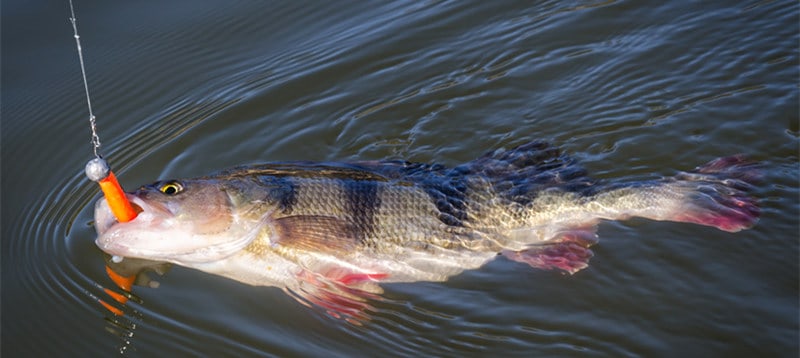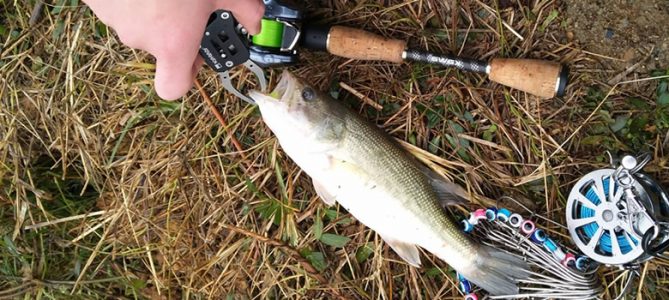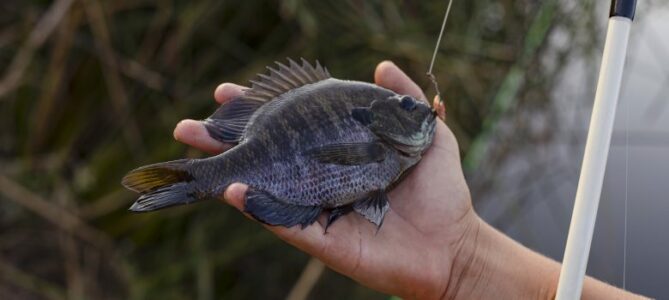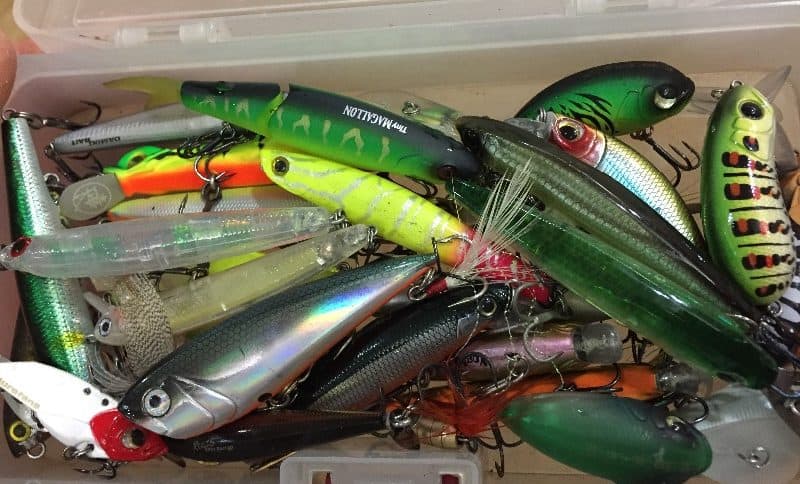If you buy via a link on this page, we may receive a commission, at no extra cost to you.Learn more
Bass is one of the most common game fish targeted by anglers around the globe. There is even a world-famous tournament in its name! But you might wonder, do anglers keep the bass they catch? Some do. But others don’t.
I know. You might be wondering. Can a bass survive with a hook in its mouth? The short answer is yes, provided that you don’t hurt the fish too much. But there are a lot of gray areas here.
So, make sure to keep reading a little longer. We will discuss strategies on how to practice catch and release fishing effectively, as well as other bits and pieces. Let’s get down to it.
Why Leave the Hook On?
You would be surprised to find out that catch-and-release anglers occasionally leave the hook inside the bass’s mouth. No, this is not counterproductive. In fact, sometimes, it is not possible to remove it safely. For example, when the hook is too deep inside or near the gills.

But it can also be unsafe for the angler to take the hook out. For example, some fish might have too strong of a bite or sharp teeth. Either way, under the right situations, leaving the hook inside is the best approach.
On the other hand, there are other situations when there is nothing to do to avoid leaving the hook in. For example, when the line snaps. There are plenty of reasons why the line might break, for example, too much strain, the fish biting through it, or the friction with rocks. As we said, there is nothing to do here. Unless you wish to leap in the water and chase after it.
Do Fishing Hooks Dissolve Inside the Bass Mouth?
Sadly, freshwater is not as corrosive as salt water. As a result, it will take much more time for the water to corrode the hook until it dissolves. If this ever happens.
So, we can safely say that, in practice, no fishing hooks do not dissolve in fresh water. On the other hand, although saltwater does have the power to dissolve hooks, it will take an awfully long time to happen.
There are also other variables in place here, for example, the material of the hook and how old it is. Older iron hooks will be the quickest to dissolve.
Do Bass Spit Hooks?
Although fish don’t spit like us humans, they have the ability to shake the hook off their mouths. How long it takes depends on several things. For example, the deeper the hook is, the harder it will be for the bass to shake it off. In addition, the type of hook also plays a role. Treble hooks prove harder to shake off and often pose the biggest threat to bass live.
Therefore, stay away from treble hooks if your plan is to practice catch-and-release fishing. The hook size also determines how difficult it will be for the bass to spit the hook. Larger hooks are harder to shake off. So, make sure to use the correct size in order to decrease the harm done to the bass.
What Can You Do to Avoid Losing Hooks?
Like we said before, people don’t leave hooks inside a fish’s mouth just for the fun of it. This happens because of accidents, or the hook is in such a position that it poses a threat to either the fish or the angler.
So, you should consider using a hook remover to lower the possibility of harming yourself. It will also help the fish, as you will be able to remove the hook without causing too much harm.
Think about using barbless hooks to minimize harm to a minimum. The only problem here is that these hooks don’t secure the fish as effectively as a regular one.
You should also stay away from treble hooks since they are harder to remove both for you and the fish. The same goes for lures with more than one hook attached.
Can Bass Live With a Hook In the Mouth?
Yeah, like all animals, fish have the ability to self-heal over time. Naturally, this depends on the wound and the fish’s age. Old bass is less likely to survive being hooked. Similarly, survival is unlikely if the hook manages to tear the gills or any other organ.
But in an ideal situation, yes. The Bass will heal after being hooked.
Does a Hook Hurt Bass?
You will be surprised to know that bass is not as affected by being hooked as you think. Their mouth is not as sensible because they lack nerves. Hence, they won’t be bothered by the fact that a metallic wire is piercing its mouth.
Now, this makes total sense if you think about it. Bass, like other fish, eat many different animals that could cause them harm in the mouth. They wouldn’t do it if this area was so sensitive.
Final thoughts
While hooks are meant to pierce a fish’s mouth, they will be fairly ok in time. Their wounds will heal, and they will continue their lives as normal once the hook is off. But can they survive with a hook inside their mouths?
Yes, they can! It might not be an ideal situation for them. But it is totally possible. Furthermore, bass like any other fish, are able to shake the hook off in time.
Just remember the following key takeaways: Don’t use treble hooks, use barbless hooks for catch and release, and avoid using lures with more than one hook on them! On top of that, make sure to bring a hook remover. This way, you are more likely to take the hook off with minimal damage.




